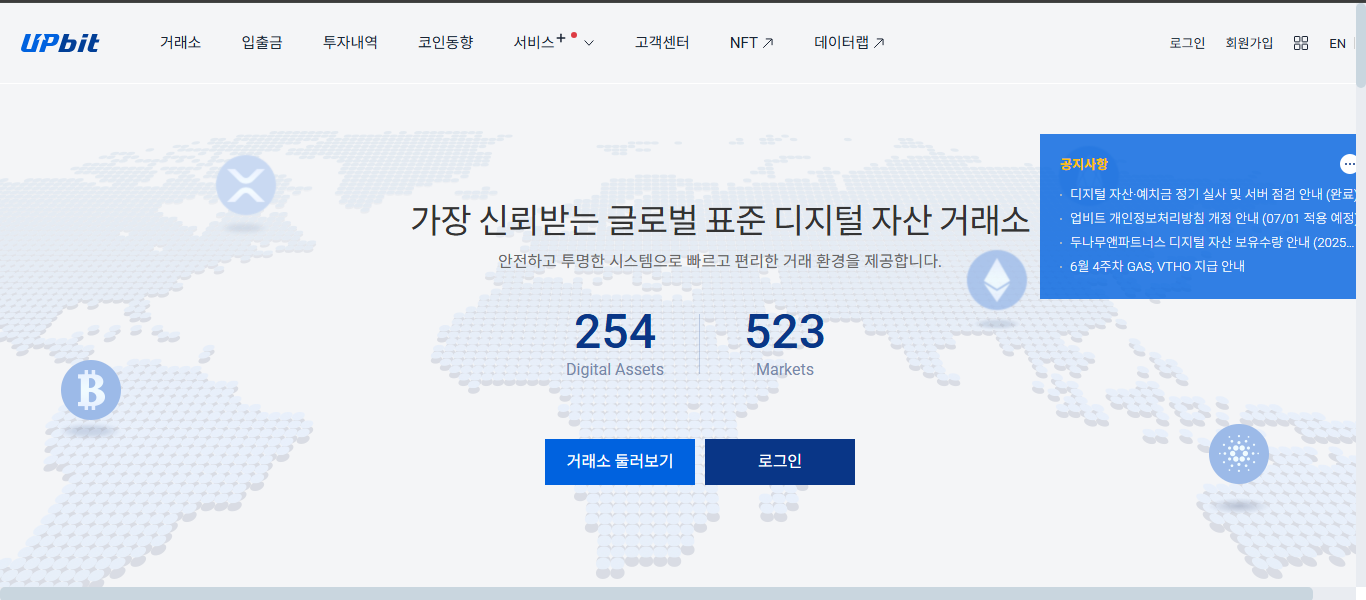Upbit Review - powerhouse depth with regional boundaries

Upbit stands as a dominant force in South Korea, backed by robust liquidity in KRW pairs, a wide array of tokens, advanced derivatives, and a polished user experience. It presents itself as a leading, regulated hub built for both newcomers and pros. Yet for global users, its strengths often come with forms of friction, making it a high-quality but regionally bound choice.
First impression: seamless KRW funnel meets rich ecosystem
Landing on Upbit, you’re met with polished design and swift market access. Korean won flows easily into your account via local banks and finance apps. Spot markets display tight orderbooks, and advanced charting tools are available with a few clicks. The site caters beautifully to local traders - yet even this smooth experience masks deeper operational choices that shape who it really serves.
Key strengths: liquidity, regulation, and technical polish
Here’s where Upbit truly excels:
- Deep KRW liquidity: One of the densest orderbooks in the world for Korean won pairs. That means tight spreads and fast fills for BTC, ETH, Dogecoin, Shiba and dozens more.
- Vast token library: Hundreds of listed assets, from blue-chip coins to emerging alt projects, offering broad market exposure in one place.
- Structured fiat rails: Onboarding with KRW is seamless, thanks to official partnerships with local banks and regulatory approval. Deposits and withdrawals are fast and reliable.
- Advanced features: Includes a derivatives platform for trading, lending and promotional yield programs. Traders can tap into high-level tools without leaving the platform.
- Regulated backing: Upbit operates under proper licensing, with standard know-your-customer and anti-money laundering protocols-comfort for users who want formal oversight.
These factors combine into a polished, stable experience for someone using Korean fiat and careful trading strategies.
Limitations for global users and borderless ambition
Those benefits come with trade-offs:
- KRW exclusivity: Fiat entry requires a Korean bank account. Non-Korean users must find cumbersome workarounds, reducing convenience and compliance.
- Geographic restrictions: Many regions are blocked due to licensing or policy issues. Even global candidates face limited access.
- KYC enforced: While adding security, it means full identity checks-far from convenient for privacy-minded users.
- Interface weight: For newcomers or those using niche DeFi tools, the interface can feel busy and overwhelming. It’s clearly built for focused users with experience.
- Missing DeFi integration: Unlike some global platforms, Upbit lacks direct decentralized finance links, on-chain staking, or crypto wallet connectivity beyond in-platform tools.
Liquidity snapshot and trading experience
Upbit’s spot books are impressive. KRW pair depth makes it ideal for large trades without too much slippage. Bitcoin and Ethereum flows are consistently high, and the platform supports many stablecoin and altcoin pairs. Derivatives markets show strong activity-futures, options, and margins are functional, though often Korean-only. Charts, orders, and account dashboards load quickly and respond smoothly.
Trading is generally friction-free, though big orders may require approval or limit checks. Everyday crypto moves rarely hit friction - until compliance or payment rails get in the way.
Community trust and reputation
Upbit enjoys a strong domestic reputation. Korean users praise its interface, reliability, and deep liquidity - rarely do major outages occur. Regulatory compliance adds peace of mind. On the other hand, global voices often signal frustration: blocked IPs, limited deposit methods, and heavy KYC discourage international usage. When issues arise, response times tend to be slow, and discussions in global forums reflect the platform’s region-locked nature.
Strengths vs limitations - a quick breakdown
Who Upbit serves well - and who it doesn’t
Suits:
- Korean-based traders seeking deep liquidity and broad token access.
- Users focused on KRW and compliant fiat flow.
- Traders requiring derivatives, leverage, stable deposits, and withdrawals.
Falls short for:
- Non-Korean users without official bank accounts.
- Traders requiring privacy or minimal KYC.
- Anyone seeking DeFi-style tools and cross-chain wallet interfaces.
Final thoughts: polished but parochial
Upbit is a polished, deep-market powerhouse - ideal for Korean traders who value speed, regulation, and high liquidity. It’s built strongly for that user base and barely faints when handling big flows or cross-asset needs.
Outside of Korea, though, the friction points pile up: bank requirements, geo-restrictions, and lack of wallet-based DeFi access all limit global reach. If you're serious about trading in KRW and based in South Korea, few platforms compare for trust and breadth. But if your goal is borderless crypto access, flexible on-ramps, or hybrid models combining CeFi and DeFi, Upbit isn’t the gateway - it’s a destination built for one audience.
For international traders, it may be worth exploring via local crypto assets or P2P workarounds, but don’t expect the ease of passage you’d get on globally open, seamless platforms.
Disclaimer
“This content is for informational purposes only and does not constitute financial advice. Please do your own research before investing.”
.png)







%203.svg)
%203.svg)




















